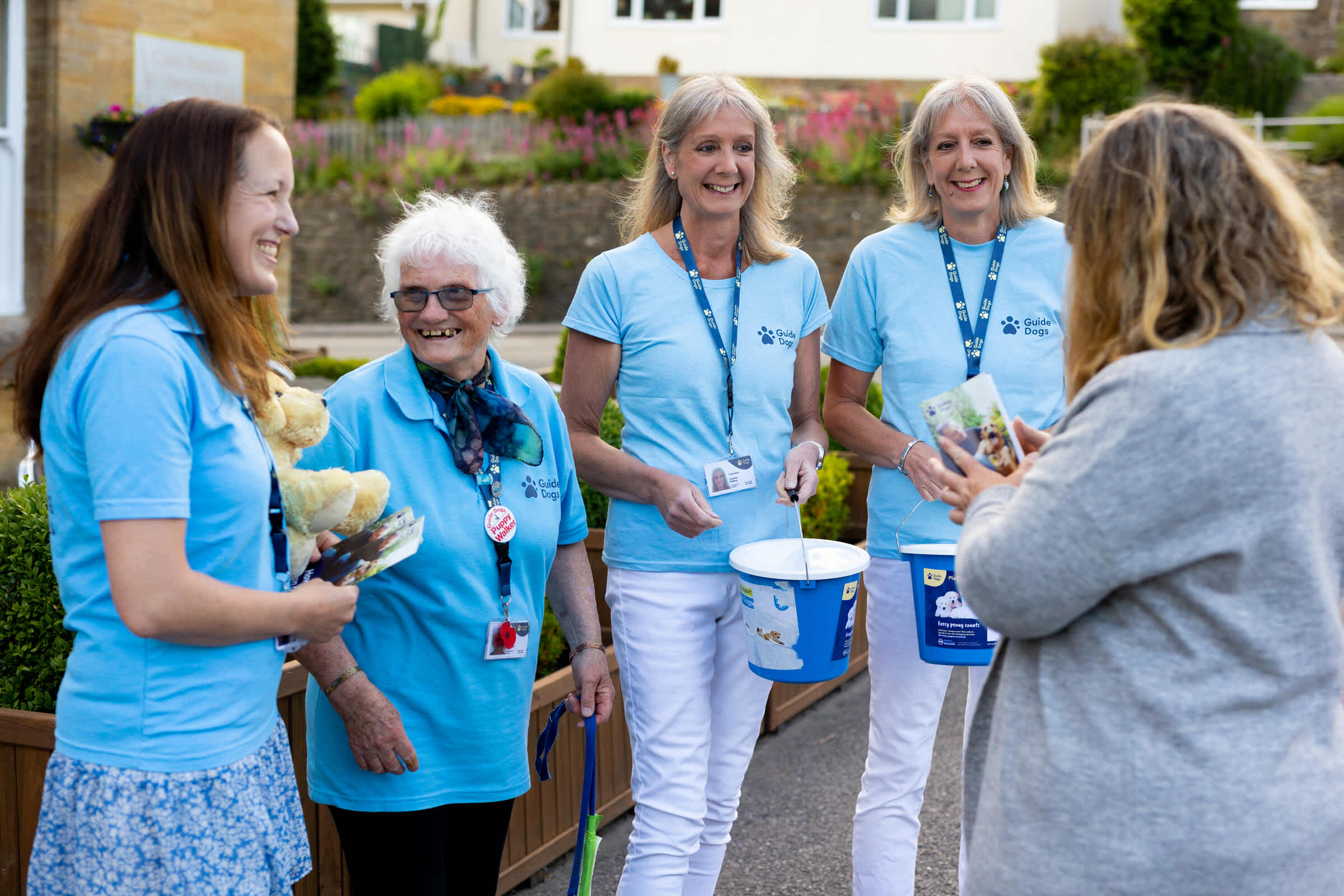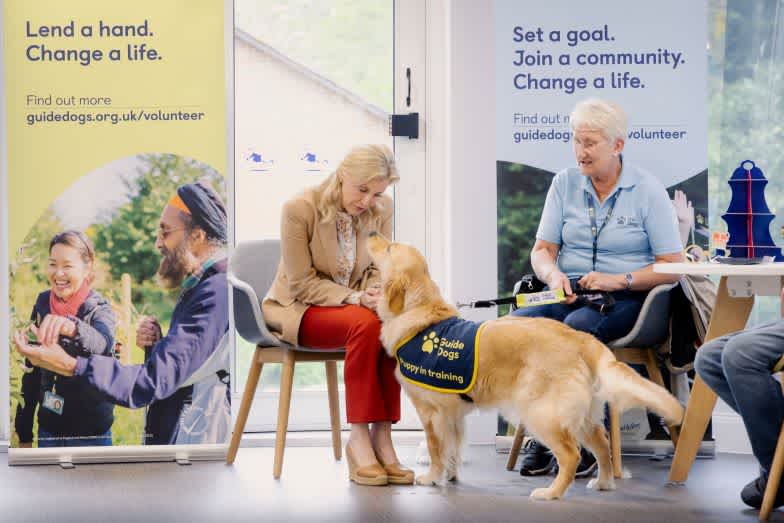Our new research* has revealed that nearly half (45%) of British non-dog owners would like to own a dog, but only 4% could commit to full-time care due to work commitments.
Amidst the ongoing cost of living crisis, two-fifths (40%) of Brits have been unable to welcome a new pet dog into their home. The financial impact of the crisis has prompted many to reconsider their decision, as half (51%) said it’s not financially feasible to take on the responsibilities and expenses associated with dog ownership.
Many Brits (58%) said they’d like a dog, but 49% say they couldn’t commit to full-time care due to work commitments and 31% can’t commit long-term. However, nearly a quarter (22%) claim they’d be interested in part-time ownership, while 18% would be interested in owning a dog overnight and on weekends.
The research has been revealed as Guide Dogs encourages volunteers to sign up to become Fosterers to dogs in training. Guide Dogs cover all the dog’s expenses, including training, food and vet costs, with volunteers giving love and care during evenings and weekends.
The cost of veterinary care (37%), the price of dog care (32%) and working in an office full-time (16%), are the main reasons Brits don’t have a dog. So, it’s not surprising that low-commitment dog ownership is rising, with dog-sharing apps fuelling the trend. Wanting to be more active (28%), reduce stress/anxiety (28%), find companionship (27%) and building confidence (25%), are the main reasons for part-time dog responsibility.
Surprisingly, over two-thirds (68%) of Brits haven’t heard of fostering a dog from Guide Dogs, but a third (34%) said they would be interested in signing up. In fact, helping to make a difference in someone’s life (50%), supporting people with sight loss and aiding those who want to own a dog (49%) and assisting Guide Dogs' mission (46%), are the main reasons people would like to volunteer.
Prisca Mascarenhas, an experienced Fosterer, has been actively fostering guide dogs in training for the past five years, providing care for six dogs during that time. Prisca comments "My husband and I decided to become Fosterers because it offers us the best of both worlds. We have the privilege of caring for these incredible dogs during evenings and weekends, which fits perfectly around our work and family life. The best part is, there are no financial expenses involved, and we are constantly learning and working in partnership with the trainers."

As someone who had never owned a dog before, this role has given us confidence and companionship, and we love being able to help a visually impaired person with their independence and their freedom.
Prisca, Fosterer

Tracey Berridge, Head of Volunteering at Guide Dogs, said “Our fostering programme offers all the joys of dog ownership but with a schedule that fits around your existing commitments. Becoming a Fosterer is a wonderful opportunity for people who love dogs and want to make a difference to the lives of people with sight loss. By opening their homes and hearts to our dogs, Fosterers play a crucial role in our mission to train more guide dogs. We have lots more dogs entering their formal training and we can only create our life-changing partnerships with the support of our amazing network of volunteers.”
Fosterers are required to ‘do the school run’ for dogs in training by dropping them off and collecting them from their local Guide Dogs training centre, as they prepare to become life-changing guide dogs to support people with sight loss.
*Survey of 2,000 British adults was carried out by OnePoll between 23rd – 30th May 2023



